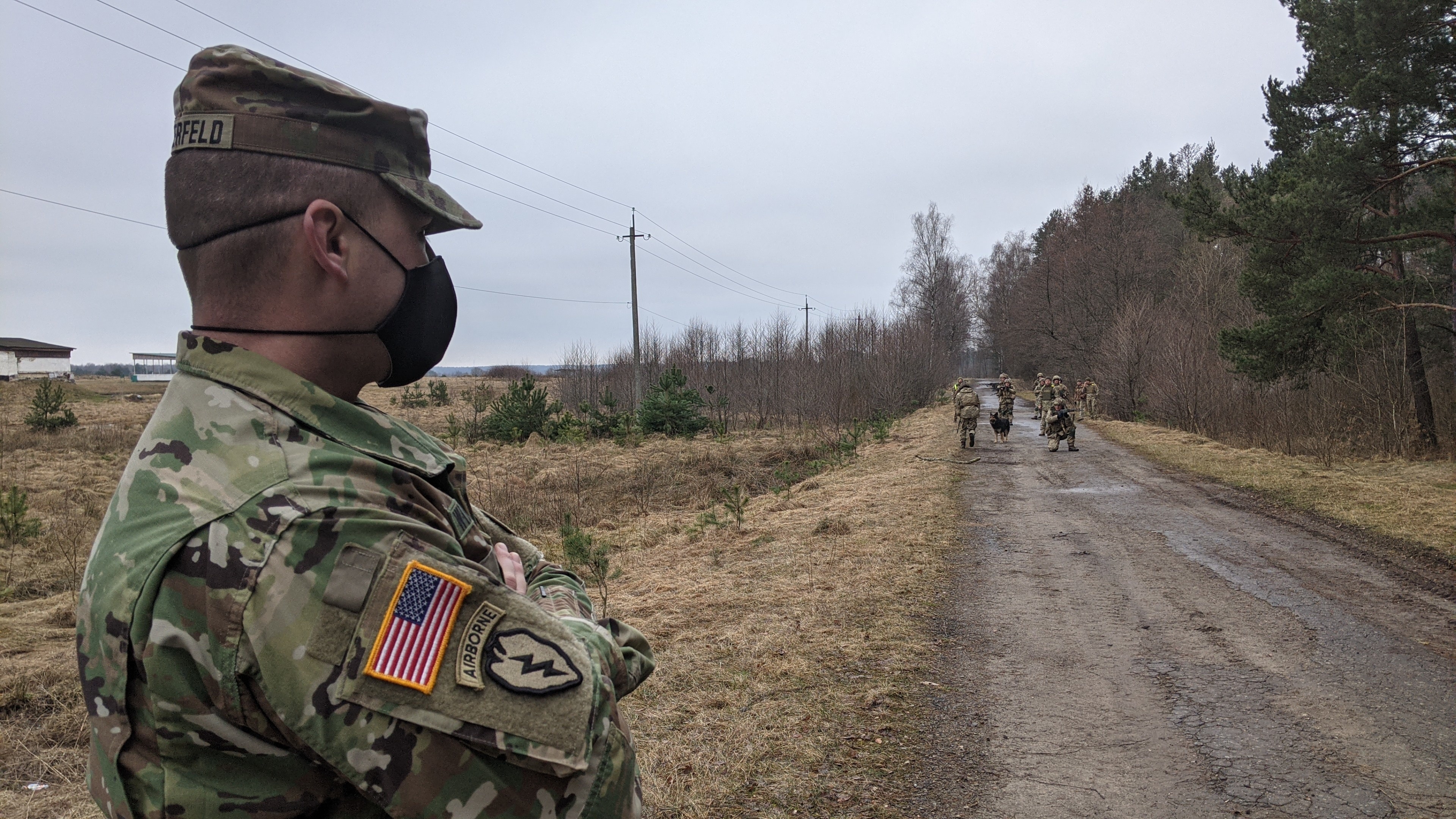
Russian President Vladmir Putin is “an international criminal, and we need to be saying this” as forcefully as the United States condemned the leader of Serbia as responsible for the bloody Balkan wars during the 1990s, a former top NATO commander said Thursday.
Retired Army Gen. Wesley Clark said the Kremlin “responds to power” in the same way that Slobodan Milosevic, president of Serbia, did in the earlier European crisis by backing off. Milosevic died in prison in 2006 facing charges of war crimes and genocide from an international tribunal in the Hague, Netherlands.
“We should be playing that card” with the Kremlin now in the Ukraine crisis, Clark, who had multiple meetings with Milosevic, added. “We’ve got to have our own information campaign” to counter Russia’s and explain to the American people what’s at stake in Ukraine.
Ukrainian President Volodymyr Zelensky “should explain [to the U.N.] how his country is under threat” from 100,000 Russian troops on its borders and Moscow’s demands that it become a buffer state between NATO and Russia.
All the panelists agreed with Oleksandri Danyliuk, former Ukrainian secretary of its national security and defense council, when he said Putin’s “ambitions are much bigger than Ukraine.”
As the Kremlin tries to re-establish post-World War II spheres of influence in Eastern Europe, “our strongest threat … is expanding NATO,” said Harlan Ullman, an Atlantic Council senior adviser.
Calling Putin a “risk-taker,” Clark said the Russian leader “wants an opportunity to shatter NATO.”
During the online Atlantic Council forum, John Herbst, a former ambassador to Ukraine, said he believes Putin is staging “an elaborate bluff game” as talks between the United States and European allies and partners open with Russia next week.
Although he downplayed the possibility of a large-scale Russian invasion, Herbst said he couldn’t “rule out something smaller,” such as occupying a key Black Sea island or seizing a canal. “That should bring down major, major sanctions.”
Herbst added that the United States appeared ready to do this, but was less confident in how the Europeans would react to that kind of move.
“We don’t have a weak hand” as the talks begin, Evelyn Frakas, former deputy assistant secretary for defense for Russia, Ukraine and Eurasia, said. She noted President Joseph Biden’s frank telephone conversations with Putin recently over the U.S. position on the Ukraine.
In addition, “we’re going to have allies” as these talks begin.
Frakas said Ukraine “will not be a Yalta,” which was consigned to the former Soviet Union’s sphere of influence.
Clark said Russia’s military strength is greater now than when it invaded Georgia in 2008. Since then, Putin has invested in hypersonics and other new technologies, as well as tanks and aircraft. “He’s had them practice their skills in Syria and Dombas,” a province in eastern Ukraine, Clark said.
The Russians have also adopted a strategy of “escalate to de-escalate” by threatening the use of nuclear weapons as a means to keep NATO from acting. “They know this is a winning move,” Clark said. He added that Putin believes the West is declining as a unified power, citing Brexit, the rise of populist governments in Hungary and Poland and deep political divisions in the United States.
Complicating military planning in NATO is the possibility of Russia using chemical weapons, as it has in political assassinations. He added that for Russia, “release of chemical weapons is not a political decision but a military decision.”
Ullman pointed out that there are still weaknesses in the Russian armed forces, which is a mixture of professionals and conscripts. Other panelists added that Ukrainian resistance to a Russian invasion likely would be fierce.
“We need to put the Russians on their heels” in the way we present this crisis, Herbst said. He said the United States and NATO have only done an “Ok job” sending necessary weapons to Kyiv, like Stinger missiles for air defense and Harpoons for maritime defense.
“The only way to deal with Putin is to show a strong hand,” he added.
American and NATO “air power is what’s needed,” said Clark, who commanded alliance forces in the largely air campaign against Serbia. “They know how good we are.”
NATO should also explore positioning aircraft on Romanian and Bulgarian air bases and strengthening ground forces in Poland and other eastern allies to deter Russia, the panelists suggested.
The turmoil in Kazakhstan, where Russia has already sent 3,000 troops to restore order, could ease pressure on Ukraine, the panelists agreed.
If the situation in the former Soviet republic is not resolved in Russia’s favor with this relatively small number of troops committed, “Kazakhstan can give us some breathing space,” Danyliuk said.





